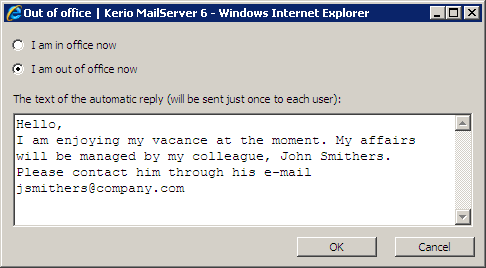A couple of weeks ago, I had the pleasure/benefit of going to Belgium for work — and when I came back, I had the pleasure/benefit (in a much different way) of meeting a Medtronic sales guy at a bar in the Philadelphia airport. I wrote about it a little bit here; in essence, here’s what happened:
- He loves beer, but has never been to Belgium — or abroad at all.
- He’s been to almost every major city in the U.S., though.
- He feels the world is unsafe; doesn’t even own a passport.
- He feels that when he goes on vacation, he’d be answering e-mails all the time anyway, so what’s the point?
By the end of this conversation, I was drunk. And sad.
Americans should learn to take vacations
The attitude of Americans on their vacation days is a terrible topic — people often avoid taking vacation because they think it might hurt them at work. You know, as in, you leave for a week or two and someone might jump over you in the hierarchy by catching the bosses’ attention at just the right moment.
Look, let’s pause for a second and say this: if you work at the type of place where that could happen when you’re gone for a week, you need a new job.
Moving on.
“I’m just such a slave to my e-mail inbox!”
I thought about this last comment — “Be Answering E-Mails All The Time Anyway” — a little bit over the last few days. I was attending this conference in Boston, and people were there from all over the world (almost mostly the U.S., India, and central Europe). A lot of people were sending e-mails during the conference — conferences can be total boondoggles, but more on that probably later today — and periodically, they’d get an out-of-office from their boss/client/whoever. They’d be pissed.
Minutes later, they’d get a response. They’d be happy.
Here’s the thing that people need to realize:
An out-of-office message is the most bullshit thing in history. It’s a gatekeeper.
How is an out-of-office message a ‘gatekeeper?’
Here’s what an out-of-office really says:
“Hi. I’m doing this from X-Date to Y-Date. If I don’t deem you that important, you should realize you won’t be getting a response from X-Date to Y-Date. If I do deem you important or vital to my success and trajectory, you will receive a response literally within 10-15 minutes.”
That’s all it is. It means nothing. It doesn’t even need to be there. If you’re on a flight from Los Angeles to Jo-Burg in South Africa, which takes about 15 or so hours, the flight probably has Wi-Fi. You’re probably using it. If the right person e-mails you, you’re answering. It’s that simple.
Being Busy = Managing Up
When we talk about being extremely busy, what we typically mean is that we’re spending a lot of time trying to manage up.
If you want a fun game for your workplace, wait until a middle manager is out of office for a week or so, or even traveling a longer-than-average distance. If you’re below the middle manager, e-mail him/her and see if you get a response within the allotted “out-of-office” time. Then see what happens when someone above him/her e-mails. That response is coming, and fast. That’s one of the big challenges of being a middle manager, yes, but it’s also something that people should start being more transparent about at work:
This person matters to me; this person matters less to me.
Yes, it would hurt feelings and potentially create lawsuits, but wouldn’t it be good if we all could acknowledge what we all already know anyway?

Loving your blog Ted! I’ve been working in the UK for the last 5 years and my attitude to holiday has totally changed. As a result – my out of office means – “I am not
Contactable for the next x days/weeks -someone else will help you or you will wait.”
It is absolutely liberating! Just an alternative perspective. Keep on keepin’ on!
Thanks so much for jumping in here, Shelley. Appreciate it.
Most email is CYA communication anyway. I tend not to turn on my OOO as I am notoriously bad at responding to email when I’m ITO. But then you know this.
No doubt it’s CYA in almost any organization; but it’s really a gatekeeper. It separates the haves from the have-nots. It’s like when a plane is deplaning from the middle, and the guy says after taxi, “Hey, make sure we let first class out first.” Everyone’s gotta be aware of who matters and who doesn’t.
You’re not so bad at in-office e-mail, but I wouldn’t say you’re good either.
I generally agree with your perspective on things related to business culture/organizational development, but I’m actually on the fence on this one. I’m the (apparently very rare) type of person that uses the out-of-office function as a sort of placeholder when I know I won’t be available to answer 99.9% of people who would normally email me. Believe it or not, there’s no corporate-ladder-climbing agenda to whether or not I will respond during out-of-office stints.
In most cases I literally will not even check my email during my out-of-office time. On the off chance I check email during an out-of-office period, it would take very substantial news (regardless of the person) for me to respond. My .02.
P.S. Thanks for the thought-provoking blogs.
That’s good stuff if you can really do that (turn off). Most people can’t.
Whenever I’ve ever put on my “out-of-office,” I’ve truly been out-of-office. I don’t even check my email… I’m sad that some people can’t disengage and would actually check their email after putting on an out-of-office. 🙁 Out-of-office times must be respected for our mental health.